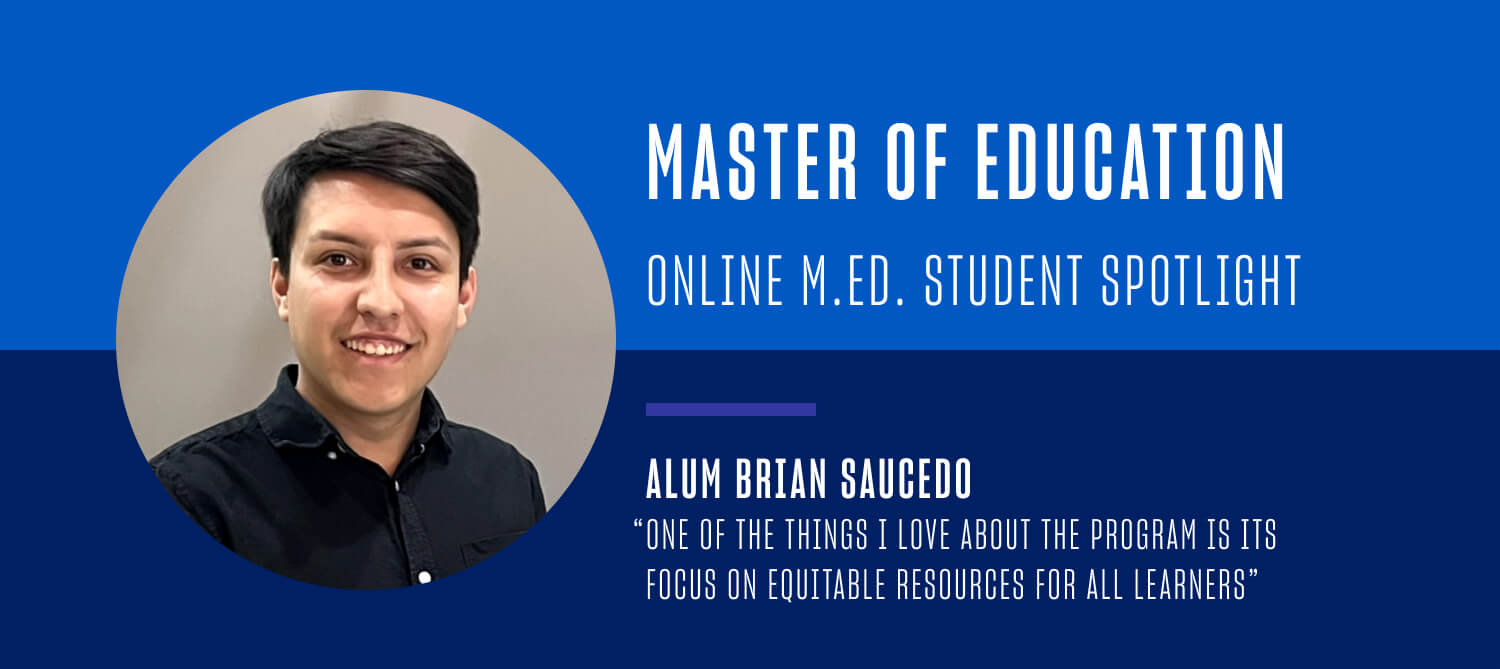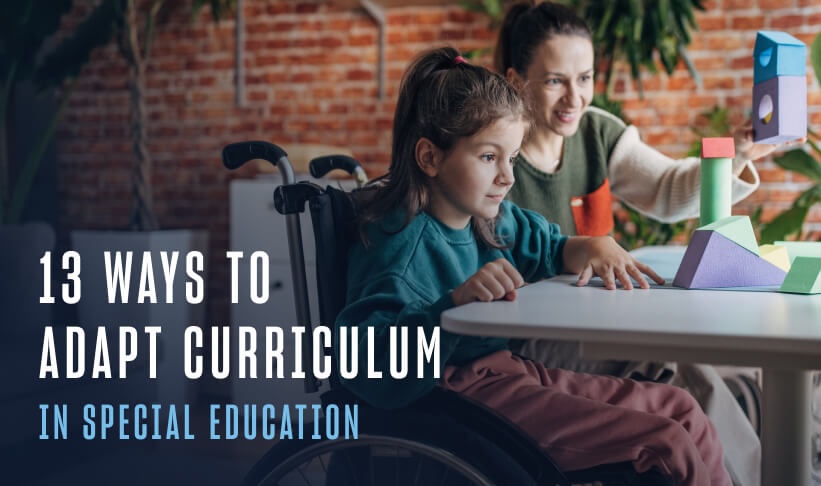Education Is Social Justice: Creating Equitable Learning Environments in K–12 Classrooms
For Brian Saucedo, there is no distinction between equitable education and social justice.
A dedicated fourth-grade teacher and current student in the University of San Diego’s online Master of Education (MEd) program, Brian is determined to foster a learning environment that represents and supports every type of student. Drawing from his own experiences with a learning disability, Brian attempts to shape his classroom curriculum to challenge the traditional education system — a system that, he believes, often fails to reflect the needs of its students.
After graduating from UC Santa Cruz in 2022 (during which time he also published an autobiography), Brian quickly transitioned into his teaching career, starting full-time in the 2023–2024 school year. His application to USD’s online MEd program was motivated by a desire to enhance his teaching practice and develop curricula that meet the needs of all learners — particularly those who, like him, face learning challenges.
“One of the things I love about the program is its focus on equitable resources for all learners,” Brian says. “The curriculum emphasizes social justice education, which aligns with my own goals of creating an inclusive classroom where every student feels heard.”
Brian’s teaching practice is deeply influenced by the critical thinking and civil discourse promoted in his MEd courses. He encourages his own fourth graders to express their opinions and engage in meaningful discussions, with projects such as his Hispanic Heritage Month assignment, where students explore, share and compare their cultural backgrounds. “We discuss different perspectives, and they learn from each other,” he says, “something I wish I had more of in my own education growing up.”
The MEd program’s online format enables Brian to balance his full-time teaching job with his studies. “The module-based structure and the quick response time from professors make the program flexible and manageable,” he notes. He particularly appreciates the support he receives from faculty such as MEd Program Director Dr. Joseph Lathan, who challenges students while providing the transparency and flexibility they need to succeed. “Dr. Lathan is always open to giving us extra time on assignments if needed, and he encourages us to reflect critically on our work,” Brian explains.
Looking ahead, Brian has a clear vision for his future. He plans to teach for several more years while finishing his MEd, then pursue a doctoral degree in Urban Leadership, with the ultimate goal of improving curriculum development and student support systems in K–12 education. “I have a seven-year plan,” Brian says. “I want to interact with more teachers and understand what curricula work best for students, especially when it comes to preparing them for important milestones like the SBAC test.”
In addition to his academic and professional pursuits, Brian is actively involved in the Latinx Graduate Student Association at USD, where he collaborates with both online and on-campus students to foster community and provide resources.
For those considering whether to earn their MEd online, Brian encourages prospective students to dive into the program with a willingness to question, research and engage with their peers.
“The best thing about this program is the flexibility it offers for working professionals,” he says. “But you have to get involved and participate in the discourse. It’s not just about completing assignments — it’s about growing as an educator and being ready to make a difference.”
For more information about this innovative program, visit the MEd program page to connect with an enrollment advisor.




